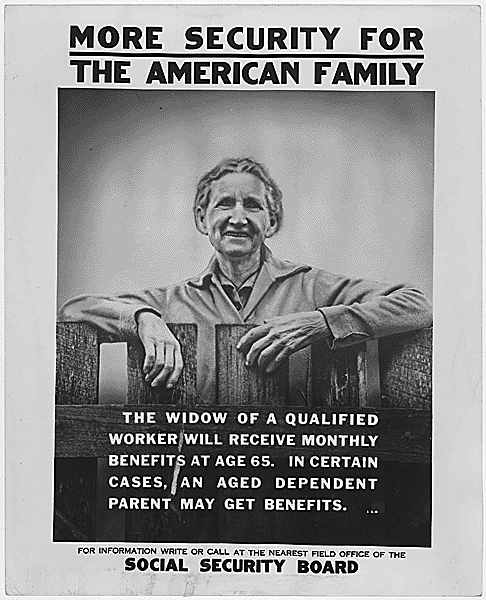The American government is charged with keeping Americans safe and promoting their wellbeing. Americans vote for candidates whom they believe have their best interests in mind; American political candidates (and the bureaucracy they marshall) seek to implement policies that will support the welfare of the American public. This is primarily achieved through social service programing.
The United States has a long political history of seeking to implement policy to promote public welfare. One of the most well-known initiatives to improve public welfare in times of need was President Franklin D. Roosevelt's response to the Great Depression. Following the stock market crash of 1929, President Roosevelt invested unprecedented governmental funds into the expansion of the executive bureaucracy in order to employ Americans and mitigate the extreme financial decline of the era. President Roosevelt's program was called the New Deal and is partially credited with lifting America out of the Great Depression. Under the auspices of the New Deal, President Roosevelt implemented programs that have lasted to the present day, such as Social Security . Thirty years later, President Lyndon B. Johnson assisted with the implementation of his Great Society initiative. President Johnson's programs weren't in response to economic decline, but rather solely sought to improve the welfare of the American public. President Johnson sought to improve racial and economic equality. He did so through the establishment of programs such as Medicare and Medicaid-- federal programs that exist to the present day that ensure certain levels of health care coverage for America's poor and elderly.The Great Society initiative further established educational programs such as the National Endowment for the Arts and generally deployed the executive bureaucracy to better welfare programs for the American public at large.

More Security for the American Family
This image from the 1930s depicts a poster promoting the new Social Security program. Social Security exists to this day as a federal program to promote public welfare.
Current American politicians also attempt to ensure that programs exist to promote public welfare. Given downturn in the American economy since 2008, many public welfare programs have been cut due to lack of public resources. However, the federal government has, in some areas, reorganized funding to promote programs for public wellbeing. The gesture to improving the wellbeing of the public writ large is represented by President Obama's 2010 law to increase public access to health insurance. This law is called the Affordable Care Act, but is more commonly known as Obamacare. Liberals and conservatives are divided on the merits of the law, but regardless of one's political assessment of the law, it speaks to the government's attempts to improve the wellbeing of the public.